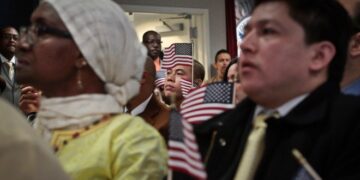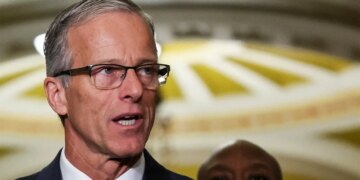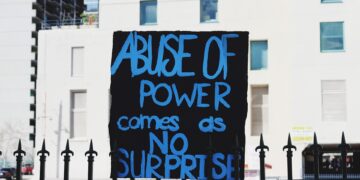
A federal judge on Monday issued a preliminary injunction against a Biden administration rule forcing employers to provide “reasonable accommodations” for employees to obtain abortions even if doing so conflicts with state law or an employer’s religious beliefs.
“This is a textbook case of a federal administrative agency exceeding its statutory authority in a way that both usurps the role of Congress and violates authority vested in the states under the principles of federalism,” declared U.S. District Judge David Joseph of the Western District of Louisiana.
In 2022, Congress passed and President Joe Biden signed the Pregnant Workers Fairness Act (PWFA). That law expanded the equally unconstitutional Americans with Disabilities Act’s definition of “disability” to include “known limitations related to pregnancy, childbirth, or related medical conditions.” Employers were thus required to provide “reasonable accommodations” for such a “disability.”
The Equal Employment Opportunity Commission (EEOC), tasked with implementing the PWFA, decided that “having or choosing not to have an abortion” was one of the medical conditions related to pregnancy that employers would have to accommodate. The agency further declared that there were no religious exemptions to its rule and that it would consider any requests for exemptions under the Religious Freedom Restoration Act or any claims that its rule conflicted with state law “on a case-by-case basis.”
Last month, Louisiana and Mississippi filed a federal lawsuit against the EEOC, arguing that, as Joseph put it, “an administrative agency of the executive branch of the federal government, without Congressional authorization, has exceeded its authority through the rule-making process in a way that subverts the will of the citizens of Louisiana and Mississippi,” who, through the democratic process, have banned abortion in their states in the wake of Dobbs v. Jackson Women’s Health Organization (2022). In so doing, the EEOC has, at the very least, forced state governments to make accommodations for employees to do something those same governments may well have forbidden.
The U.S. Conference of Catholic Bishops (USCCB) and other Catholic organizations also sued the EEOC in May because, to comply with the agency’s rule, “they must knowingly violate their sincerely held beliefs regarding what they term the ‘moral evil’ of ‘direct’ abortion or risk liability and face years-long expensive and entangling litigation by both the EEOC and private parties,” wrote Joseph.
With the abortion mandate set to take effect June 18, the plaintiffs in both lawsuits requested a preliminary injunction against it. The arguments in both cases being similar, they were consolidated into one.
Joseph, an appointee of President Donald Trump, found the EEOC’s arguments highly unpersuasive. Its contention that elective abortion is not merely a “procedure,” as the plaintiffs claimed, but treatment of a “medical condition” was “little more than semantic gymnastics,” he penned. Its assertion that it was simply carrying out Congress’ intent in issuing the rule and forbidding religious exemptions was, the judge remarked, “disingenuous.”
He elaborated:
“Abortion” is a term that is readily understood by everyone. If Congress had intended to mandate that employers accommodate elective abortions under the PWFA, it would have spoken clearly when enacting the statute, particularly given the enormous social, religious, and political importance of the abortion issue in our nation at this time (and, indeed, over the past 50 years). The Court is therefore not persuaded, on the record before it, that Congress could reasonably be understood to have granted the EEOC the authority to interpret the scope of the PWFA in a way that imposes a nationwide mandate on both public and private employers — irrespective of applicable abortion-related state laws enacted in the wake of Dobbs — to provide workplace accommodation for the elective abortions of employees.
In fact, he noted, “there can be little doubt in today’s political environment that any version of the PWFA that included an abortion accommodation requirement would have failed to pass Congress.”
The PWFA, contrary to the EEOC’s claims, incorporates the religious exemptions found in Title VII of the Civil Rights Act of 1964, Joseph found. Moreover, “the legislative history unambiguously confirms that Congress specifically did not intend for the PWFA to require employers to accommodate abortion. Indeed, lawmakers from both sides of the aisle expressly stated that the PWFA does not address abortion.” (Emphasis in original.) PWFA sponsor Senator Bob Casey (D-Pa.), for example, said unequivocally that “under the [PWFA], the [EEOC] could not — could not — issue any regulation that requires abortion leave, nor does the act permit the EEOC to require employers to provide abortions in violation of state law.”
The EEOC even ludicrously contended that temporarily enjoining its plainly illegal abortion rule would “interfere with Congress’s judgment about how best to achieve [the PWFA’s] objectives,” wrote Joseph. “But considering the findings made herein … the Court finds that the harm to the [plaintiffs] of allowing the abortion accommodation mandate to take effect outweighs any harm to the EEOC if the mandate is enjoined.”
Joseph therefore issued a preliminary injunction barring the EEOC from enforcing its mandate in Louisiana and Mississippi and upon any of the Catholic plaintiffs. The injunction will remain in effect until the case is decided.
“Banning employers nationwide from affirming life is unacceptable and unlawful,” attorney Laura Wolk Slavis of the nonprofit religious-liberty foundation Becket, which helped file the USCCB’s lawsuit, said in a press release. “This ruling is an important step in ensuring that American workplaces can be free to continue serving their communities consistent with their beliefs.”
Shop For Night Vision | See more…
Shop For Survival Gear | See more…
-
Sale!

Tactical Camo Nylon Body Armor Hunting Vest With Pouch
Original price was: $49.99.$39.99Current price is: $39.99. Select options This product has multiple variants. The options may be chosen on the product page -
Sale!

Stainless Steel Survival Climbing Claw Carabiner Multitool Folding Grappling Hook
Original price was: $19.99.$9.99Current price is: $9.99. Add to cart -
Sale!

Japanese 6 inch Double Edged Hand Pull Saw
Original price was: $19.99.$9.99Current price is: $9.99. Add to cart

































 Reaction & Commentary
Reaction & Commentary
















